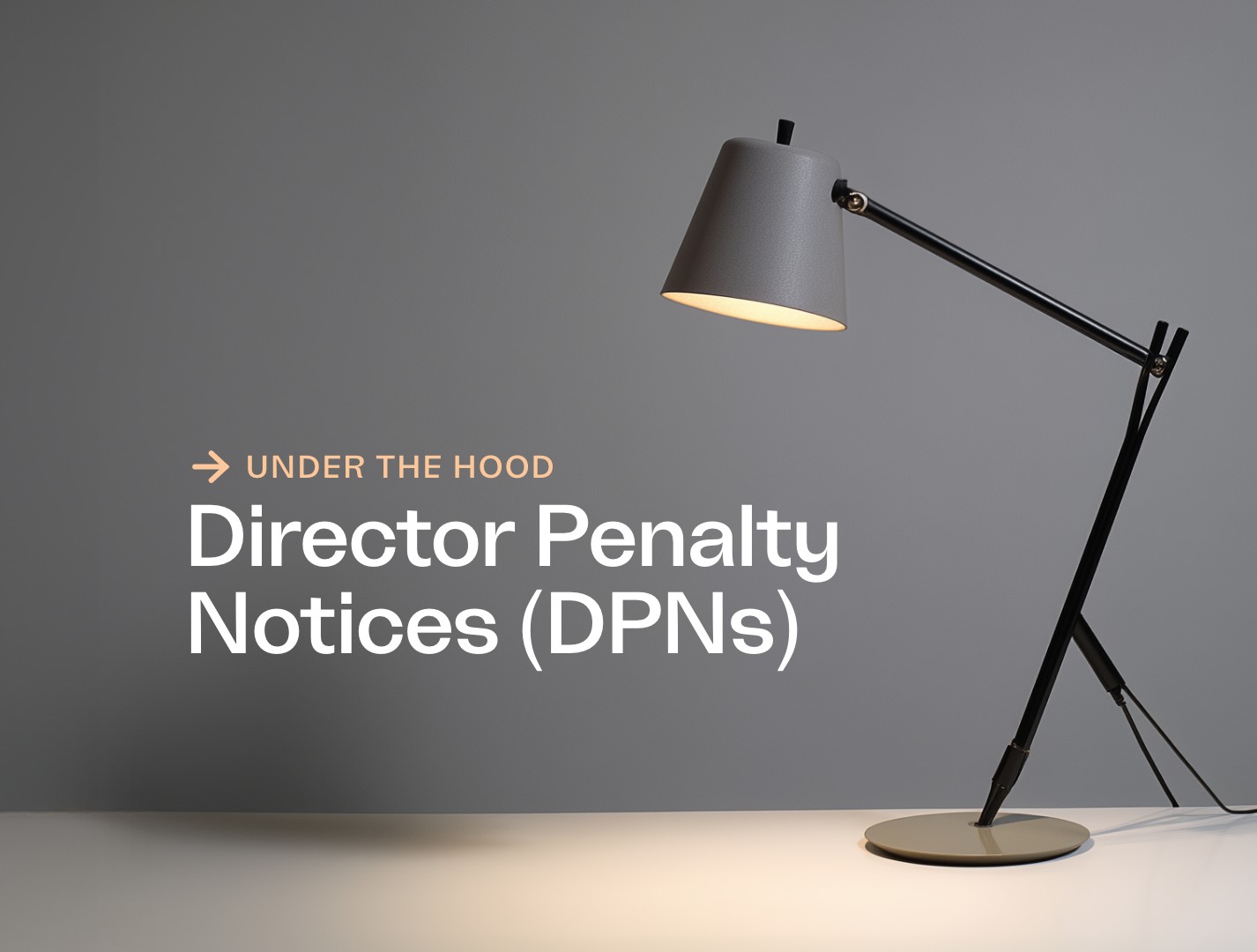

You may have seen our recent article about how a DPN works, but because running a company in Australia comes with responsibilities that extend well beyond day-to-day operations, we thought it worthwhile diving in again. A Director Penalty Notice is one of the more serious risks directors face, it results in personal liability for certain unpaid company taxes. The Australian Taxation Office (ATO) uses Director Penalty Notices (DPNs) to enforce this, and in recent months, their use has been increasing.
If you’re a director, or considering becoming one, understanding how DPNs work and how to protect yourself is essential.
A Director Penalty Notice is a formal notice issued by the ATO that can make you personally liable for a company’s unpaid:
• Pay As You Go (PAYG) withholding
• Goods and Services Tax (GST)
• Superannuation Guarantee Charge (SGC)
In other words, if these obligations aren’t paid on time, the ATO can shift the responsibility from the business to its directors.
Once a DPN is issued, directors have 21 days to take action. That action may involve:
• Paying the debt in full
• Placing the company into administration or liquidation (for certain types of notices)
Failing to respond within the deadline means the penalty automatically becomes locked in against the director personally, with no further opportunity to resolve it through company processes.
Even if your company can’t pay its full tax bill, you should still lodge BAS and superannuation guarantee statements on time. This is because:
• Lodged on time: You may still be eligible for a “non-lockdown” DPN, which gives you restructuring or administration options.
• Lodged late: You lose these options. A “lockdown” DPN means you are automatically liable, and resigning as a director won’t remove that responsibility.
• “If I resign, I’m safe.” Not true. Resigning after the debt has arisen doesn’t protect you. You remain liable for periods when you were a director.
• “The company can sort it out later.” Once the 21 days have passed, the liability is personal and permanent.
• “This only affects large companies.” In reality, small and medium businesses are often targeted because cash flow pressures can lead to unpaid GST or super.
Being a company director can open doors for growth and opportunity, but it also carries personal risks if tax obligations aren’t met. DPNs are one of the ATO’s strongest enforcement tools, and ignoring them is not an option.
The best defence is proactive compliance, clear oversight of company finances, and timely action if issues arise.
Need clarity on your obligations as a director? Give the Attune Advisory team a call on 1300 866 113 or send us an email to start the conversation — you’ll be glad you did.
